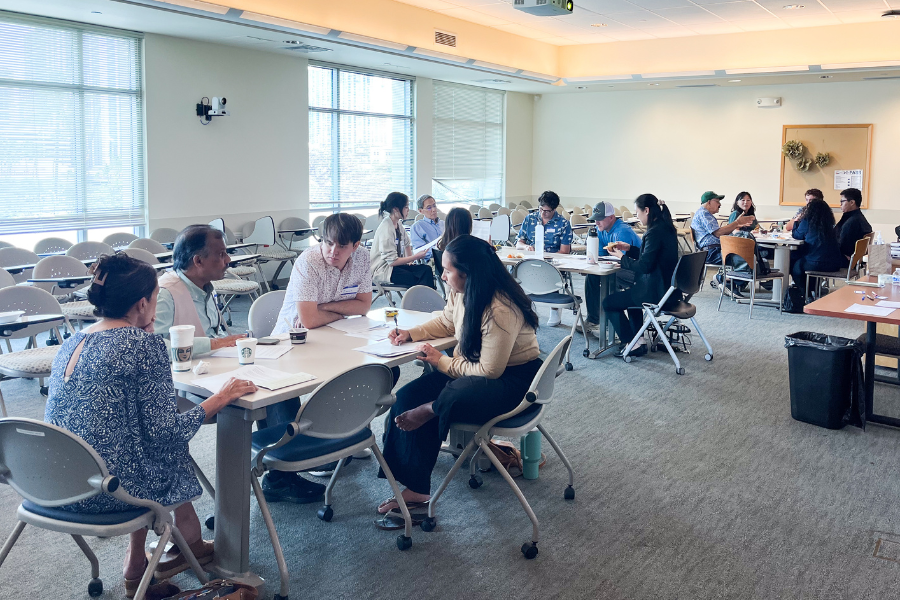
On April 12, 2025, the University of Hawaiʻi at Mānoa John A. Burns School of Medicine held its first annual One Health Hawaii Conference. One Health is a collaborative, multisectoral approach recognizing the interconnection between humans, animals, plants, and their shared environment. The event highlighted the importance of this integrated framework in addressing global health challenges such as zoonotic diseases, antimicrobial resistance, and environmental health threats.
The conference was an initiative led by medical students (MS1-MS4) of the One Health Interest Group and the Department of Tropical Medicine, Medical Microbiology, and Pharmacology. Participants included a dynamic mix of individuals from medicine, veterinary sciences, public health, and biomedical research, underscoring the truly interdisciplinary nature of the One Health concept. The conference's keynote speaker, Dr. Katey Pelican, Director of the University of Hawaiʻi Health Sciences Institute, delivered a compelling presentation on her leadership in a global partnership involving the CDC and WHO. She shared her experiences developing and implementing innovative tools and strategies to tackle urgent One Health issues, offering valuable insight into the power of cross-sector collaboration.
Following Dr. Pelican’s keynote, attendees engaged in interactive, problem-based learning (PBL) sessions. These sessions placed participants in mixed-discipline groups to work through real-world health scenarios using the One Health approach. These case studies included the discovery of the linkage of a cluster of gastrointestinal cancers to an unreported rupture of a pesticide tank, the spread of antimicrobial resistant Staphylococcus aureus in pigs and humans in a rural community, and saxitoxin poisoning of a dog and his owner that associated with a harmful algal bloom and climate change. This hands-on experience emphasized the strengths of collaborative thinking, as teams analyzed complex cases that required solutions from multiple perspectives. The conference concluded with a reflection on how a One Health approach not only improves outcomes across human, animal, and environmental health sectors but also fosters a deeper understanding of how interconnected our world truly is.